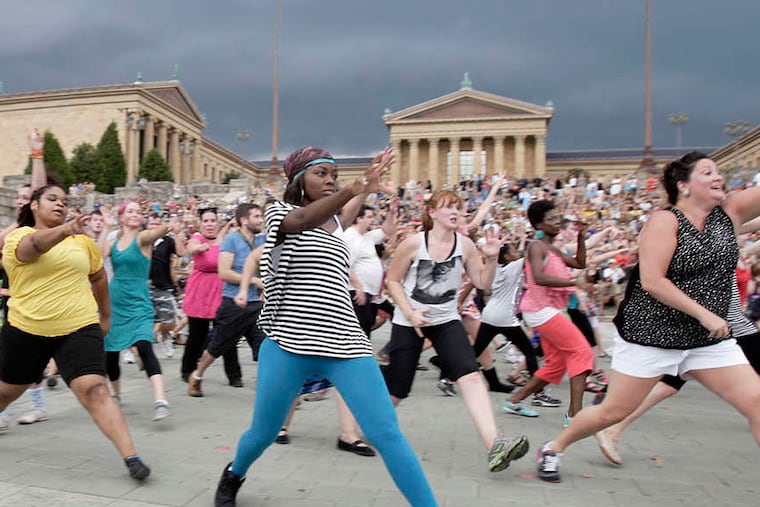Next mayor must back long-term cultural plan
Philadelphia is finally being recognized as one of the world's great cities. Word is getting out that there is something special happening here: We have the fastest-growing millennial population of any major U.S. city; we were third on the New York Times' "52 Places to Go in 2015" list; and Pope Francis is making his American debut here in the fall.

Philadelphia is finally being recognized as one of the world's great cities. Word is getting out that there is something special happening here: We have the fastest-growing millennial population of any major U.S. city; we were third on the New York Times' "52 Places to Go in 2015" list; and Pope Francis is making his American debut here in the fall.
Why is the world beating a path to our door? The excitement about Philadelphia is largely driven by one of the richest cultural communities of any major city, rich in attractions, public art, independent artists, theaters, museums, historic sites, music, art galleries, and more.
But what don't we have? We don't have a comprehensive cultural plan that is fully integrated into the city's business plan.
The time has come to stop the divisive arguments about the arts vs. the social and economic problems that challenge the city. Nonprofit arts and culture is a $3.3 billion industry that attracts 17 million visitors to the region annually. It is a powerful resource in our fight to end poverty, educate our youth, attract and retain workforce talent, and increase tourism.
Instead of being able to focus on a long-term vision, cultural groups and individual artists are constantly fighting against annual cuts to the Philadelphia Cultural Fund; recent or threatened losses of singular historic sites (including the Boyd Theatre, the Blue Horizon, and the Royal Theater); decay of public art and murals that go unrestored; and shrinking funding from government, corporations, and individuals (as noted in the Greater Philadelphia Cultural Alliance's 2014 Portfolio research report). This is all happening at a time when attendance is increasing and the impact of arts and culture has never been greater.
Back when Michael Nutter was running for mayor, we published a 13-city analysis by the Rand Corp. ("Arts and Culture in the Metropolis") that made three key recommendations:
The city has to have a long-term vision for its cultural assets;
The city needs civic leadership to champion this plan;
Those plans need to focus on how the arts contribute to the long-term goals of the region.
Philadelphia is not alone in needing to address these issues. Boston's new mayor, Martin Walsh, recently snatched Chicago's director of cultural planning, Julie Burros, to develop a comprehensive 10-year cultural plan for Boston. Pittsburgh, Denver, Charlotte, Portland, and San Francisco have all produced integrated cultural plans that include broad community input and dedicated cultural funding for cultural assets and arts education.
While our city has developed "Philadelphia 2035," a physical development outline for the city, that plan does not specifically address the long-term development of the city's cultural assets. The Office of Arts, Culture, and the Creative Economy did produce "Creative Philadelphia: A Vision Plan for Arts, Culture, and the Creative Economy" in 2010. That document was an important aspirational start, but it did not engage the broader community, and it was not actionable or tied to specific broader civic goals for the region.
We need to make sure that whoever the next mayor is, he or she is committed to bringing civic, arts, and political leaders together with concerned residents to develop a long-term, actionable cultural plan for the city. The new mayor must be prepared to make the city's Office of Arts, Culture, and the Creative Economy a permanent department and committed to providing stable city funding for the arts.
To hear the candidates' views on the future of our city's quality-of-life assets, our GroundSwell community engagement program will partner with the Philadelphia Parks Alliance to host a mayoral forum from 5:45 to 7:30 p.m. Wednesday at the Central Branch of the Free Library of Philadelphia. (To sign up, visit www.groundswellpa.org.)
If the next mayor does not develop a long-term plan for our arts and cultural assets, we (as The Inquirer has said in the past) "put at risk the tourism and population growth the city has worked hard to achieve." That is a risk we cannot afford to take.